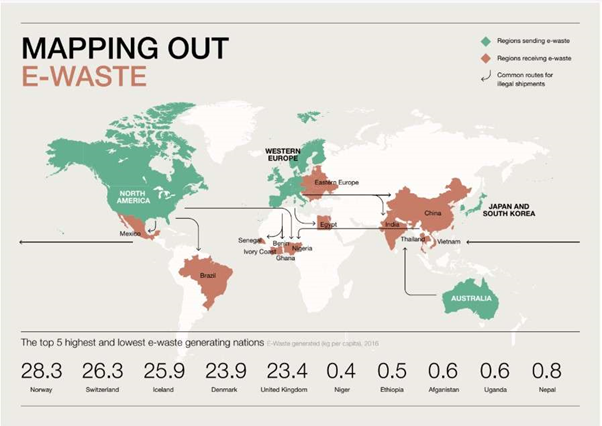

15th September 2022 (7 Topics)
Context
National Human Rights Commission (NHRC) chairperson Justice Arun Kumar Mishra (retd.) expressed concern over the dumping of e-waste in developing countries by developed countries.
About
- While addressing the annual meeting of the Asia Pacific Forum of national human rights institutions of countries in the region, he called for a stop to the practice in order "to universally ensure human rights for a healthy sustainable environment".
- A multi-pronged strategy was needed to combat climate change in a time-bound manner by all countries.
E-Waste:
- E-waste, or electronic waste, refers to all electronic equipment that’s been discarded by users with no intentions of reuse.
- This includes everything from smaller items like lamps and phones to larger appliances like televisions, refrigerators and washing machines.

|
Basel Convention:
|
More Articles


